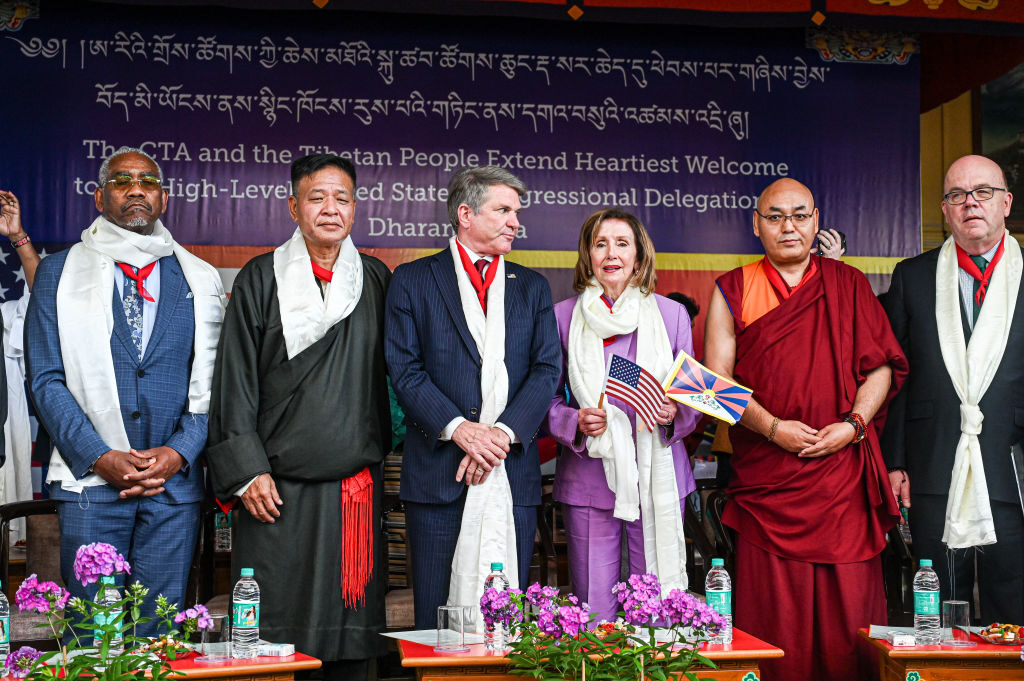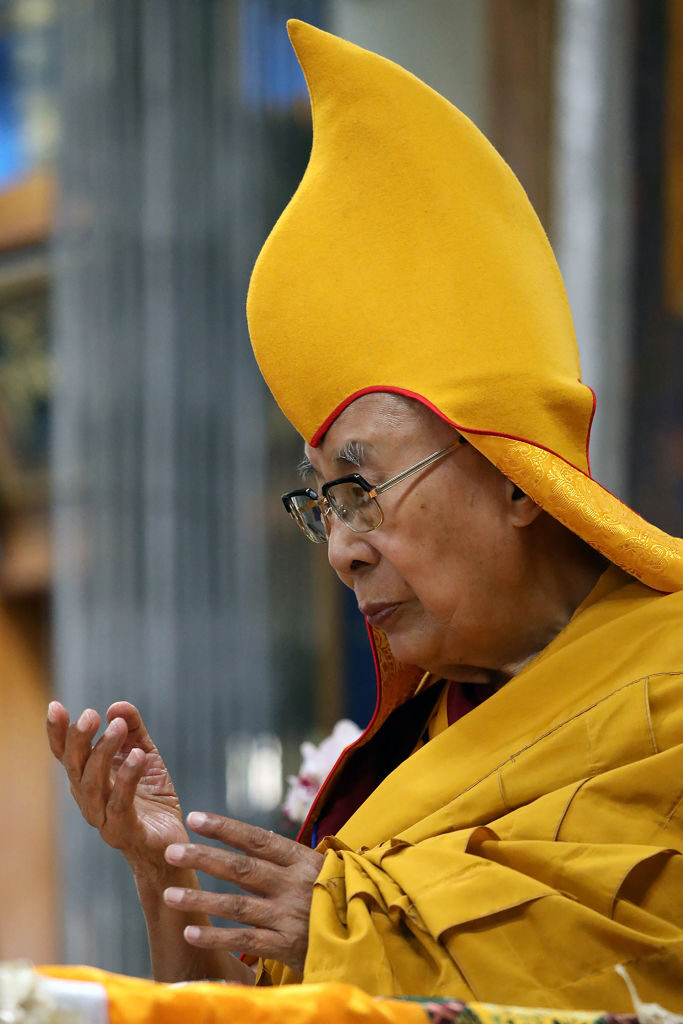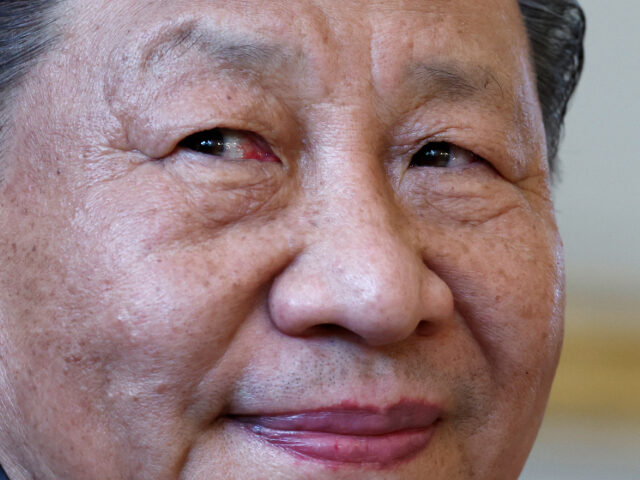Chinese dictator Xi Jinping dashed to Tibet on Wednesday to meet with Communist Party officials after former U.S. House Speaker Nancy Pelosi (D-CA) and a bipartisan congressional group met with the Dalai Lama in India.
The Dalai Lama is the 88-year-old exiled spiritual leader of the oppressed Tibetans, whose language, culture, and religion are under constant attack from Xi’s tyranny. Among other depredations, the Chinese government has claimed the power to control the Dalai Lama’s spiritual reincarnation.
Pelosi and the sitting congressional representatives met with the Dalai Lama in Dharamshala, a northern Indian city in the Himalayas, where the exiled Tibetan religious leader has dwelled for most of his long life. The group also met with Indian Prime Minister Narendra Modi in New Delhi during the trip to India.

A bipartisan group of U.S. lawmakers, including Rep. Michael McCaul (R-TX) (CL) and Rep. Nancy Pelosi (D-CA) (CR), following a meeting with the spiritual head of Tibetans, the Dalai Lama, in Dharamshala, Himachal Pradesh, India, on June 19, 2024. (Prakash Singh/Bloomberg via Getty Images)
Pelosi taunted Xi by saying the Dalai Lama would be remembered far better by historians.
“His Holiness Dalai Lama, with his message of knowledge, tradition, compassion, purity of soul, and love, will live a long time and his legacy will live forever. But you, the President of China, you’ll be gone and nobody will give you credit for anything,” she said.
“It is still my hope that one day the Dalai Lama and his people will return to Tibet in peace,” said Rep. Michael McCaul (R-TX), leader of the group and chair of the House Foreign Affairs Committee.
McCaul said he and his wife, Linda, were “honored” to meet with the Dalai Lama and “reaffirm that Tibet has a right to self-determination, free from repression.”
“Even though he has experienced violence at the hands of the CCP (Chinese Communist Party), the Dalai Lama has maintained inner peace and continues to preach compassion,” he said.
McCaul and his colleagues specifically rejected China’s claim of authority to decide who the next Dalai Lama will be. “We will not let that happen,” he said.
Congress passed a bill on June 12 urging China to productively engage with the Dalai Lama and other Tibetan leaders to resolve disputes over Tibetan governance. The Chinese government has not held formal talks with the Dalai Lama since 2010.
The bill rejected China’s assertions that Tibet is, and always has been, purely Chinese territory and called on Beijing to “cease its propagation of disinformation” about Tibetan history and culture.
McCaul and Pelosi both predicted that President Joe Biden would sign the bill into law.
“This bill says to the Chinese government: things have changed now, get ready for that,” Pelosi said.

Tibetan spiritual leader Dalai Lama attends a prayer ceremony at the Main Tibetan Temple in McLeod Ganj on April 3, 2024. (AFP via Getty Images)
The Communist regime in Beijing quickly signaled that it was not, in fact, ready for that. The Chinese embassy in Washington denounced the Tibet bill as an unacceptable and irrelevant attempt to meddle in “China’s internal affairs.”
“The U.S. should not provide a platform for ‘Tibetan independence’ forces to engage in anti-China separatist activities. China will take all necessary measures to defend its interests,” the embassy said, dismissing the Dalai Lama as a “political exile” and “separatist.”
“We urge the U.S. side to adhere to its commitments of recognizing Tibet as part of China and not supporting ‘Tibet independence.’ The U.S. must not sign the bill into law,” the Chinese Foreign Ministry said on Tuesday.
On Thursday, the Chinese Foreign Ministry said China might be willing to resume talks with the Dalai Lama, provided he makes an effort to “thoroughly reflect on and completely correct his political propositions.”
Xi’s visit on Wednesday to the Chinese-Tibetan border region of Qinghai was billed in state media as an inspection of provincial “ecological conservation” efforts, but the dictator wound up spending a good deal of time talking about “national unity” and instructing local officials to “adhere to the direction of Sinicization of religion in our country, and strengthen the management of religious affairs, especially the management of religious venues.”
“Sinicization” means rewriting captive religions so they accept the primacy of the Chinese Communist Party, teach Communist dogma in their services, and deify Communist leaders — like Xi and Mao Zedong. Leaders of the oppressed Uyghur Muslims say China “Sinicized” their brand of Islam by forcing them to drink alcohol and eat pork.

COMMENTS
Please let us know if you're having issues with commenting.